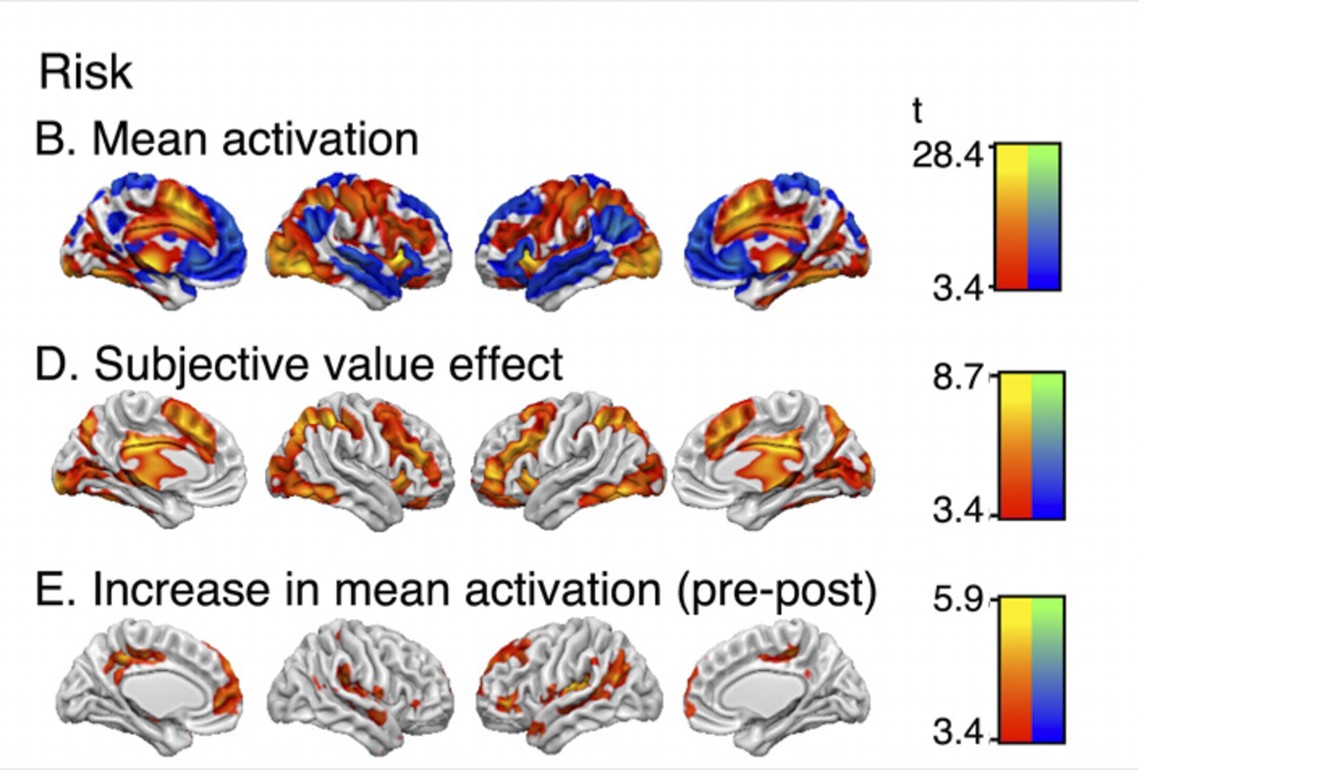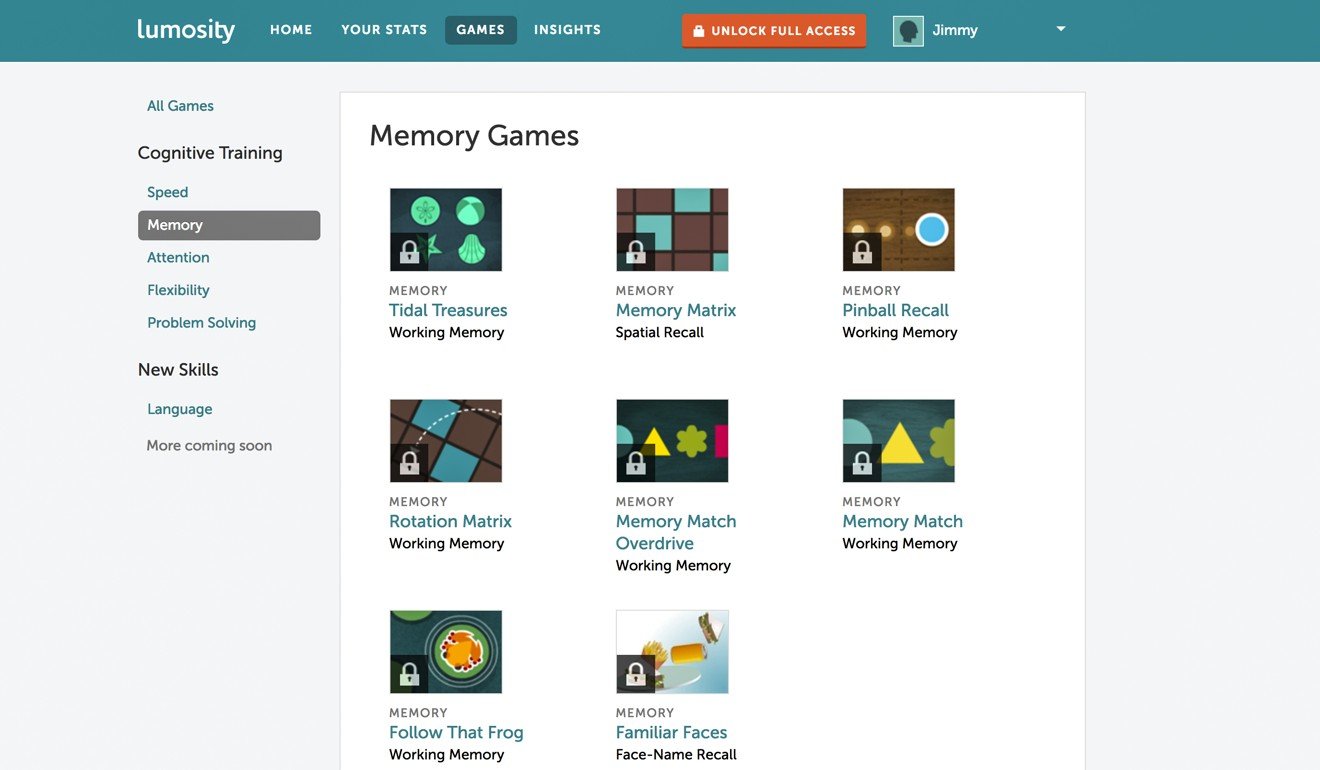
Online brain training games don’t help you make good decisions, such as quitting smoking, study finds
Study finds no evidence that games such as Lumosity alter neural activity during decision-making or that they affect choices involving risk and delayed reward
It was hoped that computerised brain training could strengthen activity in parts of the brain used in making good decisions, or resisting bad ones. University of Pennsylvania psychologist Caryn Lerman, who conducted a study into online training, thought it would prove useful in fighting obesity or cigarette addiction. Alas, Lumosity, the commercial brain training game program used in the trial, failed the test.
No, playing brain games won’t make you smarter – they’re just a bit of fun
They found using Lumosity was no better than playing some regular games developed in the Replay Lab at Philadelphia’s Drexel University. People who just took the cognitive function test three times improved as much as those who had played Lumosity and the Drexel games.
“We’re all disappointed because everyone is looking for a fun and easy way to improve cognitive performance and this does not seem to be it,” Lerman says.

Although studies on the impact of brain training have had mixed results, this one adds to mounting evidence that many who use the programs get better at the tests themselves, but not much else.
The study was publishedin the latest issue of Journal of Neuroscience.
Lerman and her team will now study whether adding electrical or magnetic brain stimulation to the mix leads to better results. “That’s where the attention is now going in the field,” she says. “We’re not pursuing studies of cognitive training alone any more.”
What doctors can tell about your health just by looking in your eyes
Our brains do change throughout life as we learn new things, and Lerman thinks there is still potential to enhance performance.
The study involved healthy young volunteers. Lerman says younger brains are likely to be more modifiable than those of older people. Still, the new results do not necessarily apply to older people who use online programs in an effort to stave off cognitive decline.

Lerman says she picked Lumosity because previous research, funded by the program’s maker, found it outperformed crossword puzzles in improving several types of brain functioning. (The makers of the program last year agreed to pay a US$2 million settlement to the US Federal Trade Commission in response to charges that the company had made unfounded claims about the games’ ability to help users perform better at work or school or combat age-related cognitive changes.)
The study was a randomised controlled trial, and participants’ brains were scanned during decision-making. It tested how much people were willing to delay rewards and how they evaluated risks after exposure to exercises meant to improve executive function, used to make decisions. The 128 participants, who were on average in their mid-20s, practised either with Lumosity or video games for 10 weeks.
Playing video games can help improve brain functions, study says
The decisions involved were meant to evaluate impulsiveness or a tendency toward risky behaviour. Participants could choose between a smaller immediate reward and a larger one that could be collected in the future. They also chose between smaller rewards they were likely to receive, versus larger rewards that were less likely.
We’re all disappointed because everyone is looking for a fun and easy way to improve cognitive performance and this does not seem to be it
Being willing to delay gratification and being risk averse make people less likely to develop addiction, obesity and financial and health problems, Lerman says. Some studies have also found those qualities also affect the likelihood of relapse after abstaining from an addiction.
Her previous work has found that engagement of parts of the brain involved in self-control predicts whether smokers can refrain from smoking.
The study found “no evidence” that brain training altered neural activity during decision-making or that it affected choices involving risk and delayed reward. People using Lumosity did get better at its specific tasks, but they were no better on standardised cognitive tests than those who played computer games.

Dawn Mechanic-Hamilton, a neuropsychologist who directs the University of Pennsylvania Memory Centre’s cognitive fitness programmes, says that, in the past, she included the BrainHQ training program in classes for people with mild cognitive impairment, often a precursor to dementia. She thinks it has better scientific support than Lumosity. She now devotes her class time either to focusing on emotional issues or strategies that help people compensate for memory problems.
Deep brain stimulation can aid Parkinson’s sufferers
Mechanic-Hamilton says the Lerman study leaves open the possibility that brain training games could still be helpful for people with specific deficits. Much of the practice in Lerman’s study, she says, was outside of the cognitive domains that have been found to be most responsive to training: processing speed and working memory. There’s little evidence, though, that those improvements in testing transfer to everyday life, “in part because we don’t have very good measures of what people do every day”.
She is both sceptical of brain training and intrigued that there are signs it could be helpful if researchers could figure out whom to target.

